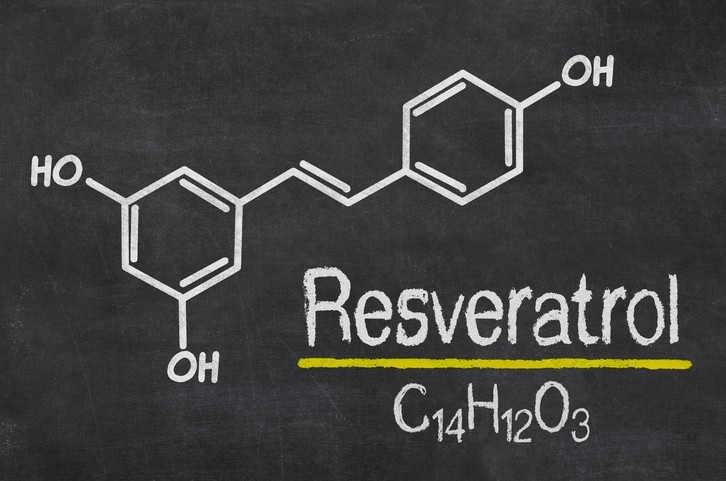Resveratrol may improve glucose homeostasis in obese mice, study finds

Published in the journal Diabetes by the American Diabetes Association, the team of researchers from the University of Alberta built on the debate of whether or not resveratrol has direct insulin sensitizing effects on peripheral tissues or if intra-organ signaling is the primary mechanism of action.
“However, given the fact that resveratrol has low bioavailability when administered orally and largely arrives unmetabolized in the colon, it is likely that resveratrol can interact with the gut microbiota,” they hypothesized.
Study methodology
Forty male lab mice were used in the study, placed in single-houses to eliminate the confounding effect of co-housing on the microbiota. Mice were randomly assigned into four groups and fed either chow, chow + 0.4% resveratrol, a high fat/high sugar diet (to induce obesity), or high fat/high sugar + resveratrol, with 10 mice in each group. Resveratrol was fed via oral gavage.
“This dose of resveratrol was intentionally chosen so as to align with previous studies that showed improved glucose homeostasis in obese mice,” the researchers wrote. In this study, researchers analyzed the mice’s glucose tolerance using an ACCU-Chek Advantage glucometer.
In addition, the researchers performed fecal microbial transfers on the mice out of 40 mg of fecal matter every second day from non-obese, resveratrol-fed mice to some of the obese mice. The gut microbiota of the donor mice was analyzed from their cecal samples, where genomic DNA was extracted.
Findings
Compared to mice fed with chow, the obesity-induced mice fed a high fat/high sugar diet experienced impaired glucose clearance during the glucose tolerance test after eight weeks. However, consistent with previous studies, obese mice administered with resveratrol had significantly improved glucose tolerance.
They also observed that resveratrol supplementation altered the commensal gut microbial community in the cecum of obese mice. In fact, a group of mice that were fed a high fat/high sugar diet and then received a fecal microbial transplant from healthy, resveratrol-supplemented mice “had higher glycan biosynthesis, genetic information processing, and replication and repair pathways.”
“Overall, these data suggest that the glucose lowering effects of orally administered resveratrol was associated with significant modification of gut microbial composition and predicted functional pathways in obese mice,” the researchers wrote.
Resveratrol-induced changes in gut microbiota associated with improved glucose homeostasis
According to the researchers, the data suggests that resveratrol-induced alterations in the gut microbiota are associated with improved glucose homeostasis in obese mice, “and that these changes may be an important mechanism by which resveratrol mediates its beneficial metabolic effects.”
Because there was a rapid and dramatic improvement in glucose homeostasis in obese mice receiving fecal microbial transplants from resveratrol-fed mice, the researchers ruled out direct effects of circulating resveratrol on peripheral target tissues.
But they added that it is “possible that changes in the gut microbial community work in conjunction with resveratrol to induce these beneficial effects.”
The researchers called for future studies using heat inactivated fecal microbial transfers from resveratrol-fed mice to help address whether or not live gut microbiota transferred are necessary for improving glucose homeostasis in obese mice.
And though there was limited understanding of the contents of the fecal microbial transplants, their findings “not only highlight a previously underappreciated site of action for resveratrol in the gut but may also assist in the eventual identification of the resveratrol-mediated mechanism(s) responsible for improved glucose homeostasis in obesity and aid in the discovery of new treatment modalities,” they argued.
Interested to learn more about the blood sugar management supplement space?
Join us for our FREE online forum, where experts from Nielsen and Atrium Innovation will talk about the latest trends and scientific findings in the pre-diabetic market, and industry regulation experts will share their expertise on labeling in the category. Click HERE to register.
Source: Diabetes
Published online ahead of print, https://doi.org/10.2337/db16-0680
"Improved glucose homeostasis in obese mice treated with resveratrol is associated with alterations in the gut microbiome"
Authors: M.M. Sung, et al.















